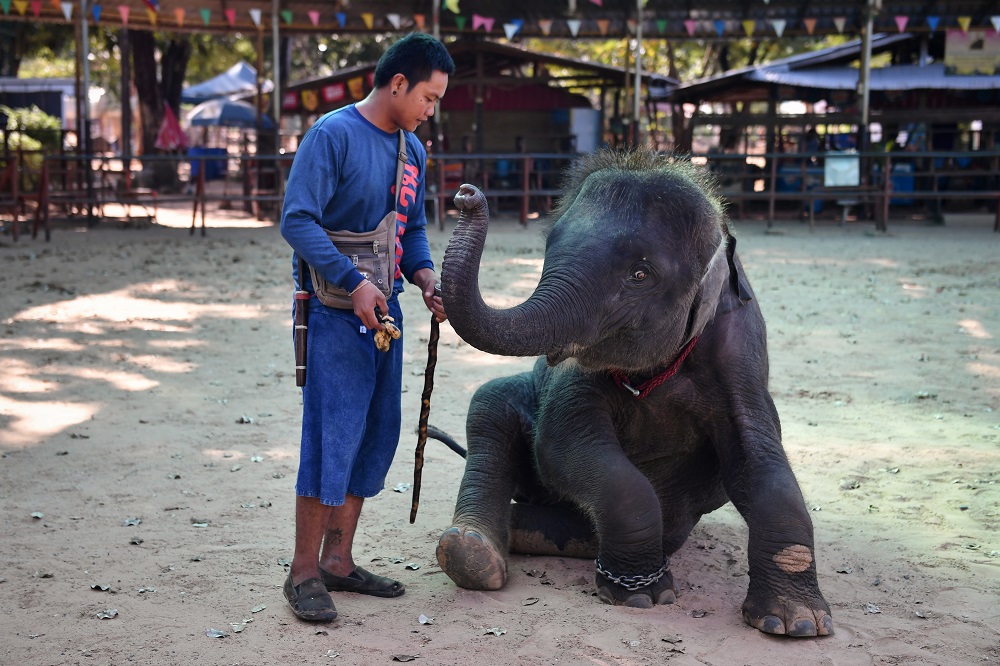Elephants in Thailand 'broken' for tourism
China Daily | Updated: 2019-12-25 09:25

BAN TA KLANG, Thailand-Separated from their mothers, jabbed with metal hooks, and sometimes deprived of food-many Thai elephants are tamed by force before being sold to lucrative tourism sites increasingly advertised as sanctuaries to cruelty-conscious travelers.
Balanced precariously on hind legs, two-year-old Ploy holds a ball in her trunk and flings it toward a hoop, one of many tricks she is learning in Ban Ta Klang, a traditional training village in the east.
Here young elephants are "broken" to interact with tens of millions of tourists who visit Thailand every year, many eager to capture social media-worthy encounters of the kingdom's national animal playing sports, dancing and even painting.
Villagers in Ban Ta Klang who have been working with the large, gentle animals for generation, say taming is necessary for safety reasons and that the force is not excessive.
"We do not raise them to hurt them. ... if they are not stubborn, we do nothing to them," said mahout Charin, as he stroked Ploy's head affectionately and spoke of her as part of his family.
Charin makes about $350 a month in a profession inherited from his father and grandfather.
"I have always lived with them," he added.
But animal welfare advocates argue the taming technique-where babies are removed from the care of fiercely devoted mothers at the age of two-is cruel and outdated.
It is also little known, one of many murky aspects of an evolving elephant tourism trade often kept from view of tour operators and travelers.
Big business
Elephants were phased out of the logging industry about 30 years ago, leaving their mahout caretakers unemployed.
So they turned to Thailand's flourishing tourism industry, a burgeoning sector of amusement parks offering elephant rides and performances.
A tamed elephant can now fetch up to $80,000, a colossal investment that then requires grueling hours of work and increasingly bizarre stunts to be recouped.
Mae Taeng Park in the northern city of Chiang Mai receives up to 5,000 visitors per day and charges an entrance fee of about $50.
Many come to see Suda, who holds a brush in her trunk and paints Japanese-style landscapes for visitors who can later buy the prints for up to $150 before taking an elephant ride through the hills.
As tourists become more aware of the potential cruelty of such activities, a growing number of places have opted to use the term "sanctuary" or "refuge".
Many do not permit rides or animal performances. Instead tourists are encouraged to feed, groom and care for elephants, gaining an unforgettable experience with one of nature's most majestic creatures.
But charities warn that even seemingly benign options, like bathing them, could still be problematic.
"Bathing with elephants … is often stressful for elephants and mahouts especially when dealing with groups of excited young people," Jan Schmidt-Burbach of World Animal Protection said.
"The best option is to leave it to the elephant to decide if and how to bath and ask tourists to stand back to observe and enjoy this moment without interference."
But even this may not be enough.
Some animal rights experts warn it can be hard to discern the treatment of the animals after the crowds have gone home. Some reported cases of elephants at so-called sanctuaries being chained for long hours, forced to sleep on concrete, and malnourished.
AFP
























